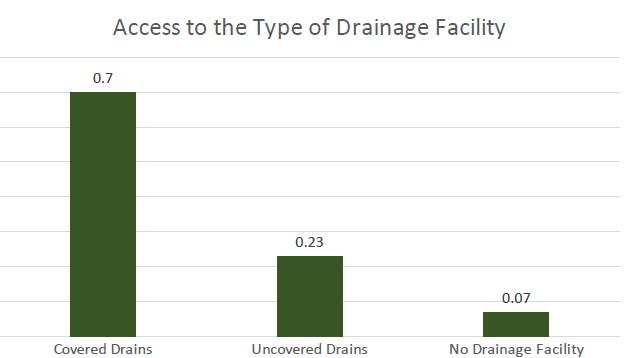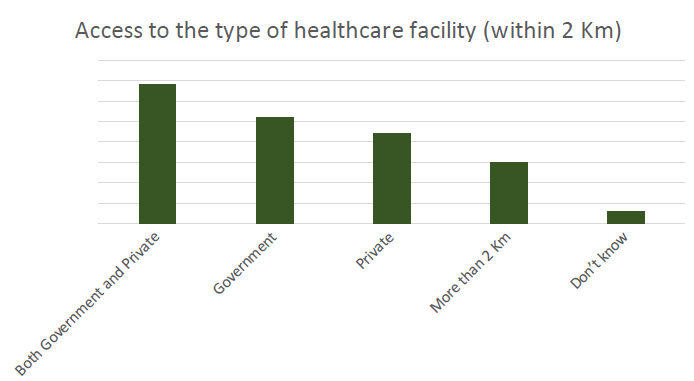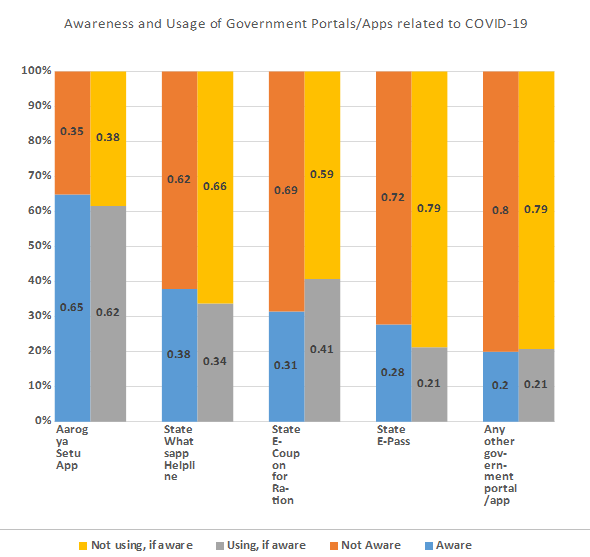
By Prof Balwant Singh Mehta, Dr Soumyadip Chattopadhyay, Dr Simi Mehta, Dr Indu Prakash Singh, Anshula Mehta, Ritika Gupta, Dr Arjun Kumar*
In conformity with the globe trend, COVID-19 is threatening cities in India with multidimensional impacts on the economy and the society. On March 24, 2020, the Prime Minister of India announced the world’s largest lockdown in a nation with a population of around 1.3 billion people to slow the spread of COVID-19 and to reduce pressure on its then inept health systems. With the huge influence of economic insecurity on the overall wellbeing of vulnerable groups in India, policymakers are faced with impossible urgent trade-off between saving lives and livelihoods. The government has announced economic relief packages, but with few exceptions, lack of coordination in the official spheres has had terrible consequences for millions of people living in the cities. In particular, the citymakers, especially those employed in the unorganized sector and living in informal settlements, have borne the brunt most of the complete lockdown in India.
Citymakers are the urban informal workers who represent a significant share of the workforce and contribute in multiple ways to the economy in cities. They have no written job contracts, no regular salaried work and are often employed casually and are without any social safety nets to support them and their families during exigencies. Moreover, their livelihood opportunities are constrained by multiple barriers that include deplorable housing conditions, inadequacies of urban services, inbuilt socio-economic disparities relating to caste and gender and also the policies and practices of governments. There have been some insightful media reports and academic institution led surveys on the plight of the poorest sections of society, particularly migrants in India, who have lost their daily wages and now are dependent on the government or non-government support for meeting their daily needs. This study contributes to this body literature by systematically drawing on data that we were able to collate from 3121 city makers from 50 plus cities of India.
Specifically, this study aimed to understand the impact of lockdown 3.0 on normal life and work of the citymakers. The survey questions were categorized under six broad themes: the city makers’ access to basic urban services, as these have crucial implications for daily practices of basic preventive measures; immediate concerns regarding their health and education related aspects during this crisis period; awareness about the pandemic and the practice of basic preventive measures in their neighbourhood; impact of lockdown on citymakers’ work and livelihood; emotional well-being during this crisis period. Following the announcement of slew of measures by the state and central governments for mitigation of economic hardships, the final set of questions related to how effective these policy responses were in terms of their access to basic needs of households are being met during the lockdown.
The telephonic-survey was conducted between 7-17 May 2020 covering responses from 3,121 citymakers across 50 cities in 20 major states of India. In order to avoid the difficulties associated with phone survey, we drew on the existing database of the previous studies conducted by IMPRI and Action Aid India and the contacts provided by their local NGO partners. We contacted the potential respondents and from whom we further identified the respondents with the support of local NGOs, community leaders, and other local people. Thus, our sample was purposive and non-representative of the cities it covers. 34% of the respondents were from the megacities (Delhi, Mumbai, and Kolkata), with the highest number of respondents belonging to Delhi (around 24%). Further, the study is limited by what respondents are willing and able to answer and it cannot go deep on questions of how and why? Nevertheless, after combining the data, this lockdown-impact survey has brought to light important insights on the plight of the citymakers and broadens the scope of evidence-based policy making in India.
Survey Findings: Access to Basic Urban Services
The recommendations of the World Health Organization (WHO) (frequent hand washing with soap, social distancing, and staying at home) for protection against COVID-19 presupposes basic living conditions and access to essential services in the cities. This survey revealed that only 48% of the respondents had access to piped/tap water supply. Thus, nearly 52% of citymakers depended on other sources of water and frequent handwashing practice remains out of their reach. They reported that they met this challenge through self-provisioning (using tube wells or hand pumps) or accessing water to private tankers – each of which entails significant household expenditure.Around 21% of the respondents depended on community toilets/public toilets/open defecation. Almost 1/3 of the respondents reported improper drainage facilities including absence of any garbage collection facility in their locality. All these pose threats of serious health problems, reducing citizens’ immunity and making communities susceptible to further malaises.


In terms of living arrangement, this survey revealed that, on average, 4 people lived in a single room within non-notified slums and unauthorized colonies. Such congested living makes the possibility of the rapid spread of COVID-19 and morbidity and mortality higher for the city makers.

Education and Health Related Concerns
51% of the respondents reported that they sent their children to government schools or colleges whereas 36% of the respondents could afford private educational institutions. During this lockdown period, online teaching has become the new mode of education. The increased reliance on digital modes of teaching has hampered the education of children in these households. Half of them reported receiving no information from school/college and 42% reported lack of device with the severity of the problem being higher among the children enrolled in government schools.
Regarding access to healthcare, almost 3/4 of the respondents reported availability of government or private health care facilities within 2 kms of their place of residence. However, there are two important concerns – nearly half of the respondents reported that either they seldom visited health centres or visit only when the health condition is critical.

Also, about 88% of the respondents depend on their household income or saving and/or borrowing or taking financial help from relatives, friends etc. for meeting their health related expenditure requirement. Further, any kind of health emergency on account of COVID-19 would further exacerbate their already weak financial position and make them more vulnerable.

Preparedness for the prevention of COVID-19
A defining challenge for devising appropriate mitigating policies for the citymakers is the lack of data about them both prior to, and during, any kind of emergencies. So, preparedness and early action by the communities are essential. One of the silver linings that emerged from this survey was that 3/4 of the respondents reported adherence to the social distancing norms at an individual level and also within their locality during the period of survey. However, their responses regarding screening and contact tracing is a matter of serious concern. 65-70% of the respondents either reported non-practice of screening and contact tracing or were simply unaware of these mechanisms to combat COVID-19. Further, only 47% of the respondents were hopeful that social distancing would be ensured in their neighbourhood after lockdown. This might be due to the fact that perception of respondents and their household members getting infected has declined substantially and this, in turn, might have made respondents more complacent about the practice of preventive measures. However, incidence of COVID-19 infections is expected to increase with the resumption of social and economic activities and so, there is an urgent need to sensitize this vulnerable section about continued practice of preventive measures.
Work and Livelihoods
Majority of our sample (almost 3/4) respondents were engaged in informal employment. Even among the salaried workers, 45% worked in temporary or contractual jobs. These respondents are particularly vulnerable to economic and health shocks due to the irregular nature of their income, unstable jobs and lack of access to any social safety nets and are unable to put food on the table amid lockdown policies. We have found that 6 out of 10 workers had lost their jobs during the lockdown. 74% of the casual labourers lost their jobs while 67% of the self-employed workers could not pursue their economic activities due to lockdown.
When inquired asked about their reasons for unemployment, quite a significant proportion of surveyed respondents cited their inability to visit workplaces and closure of places of works as pressing reasons. While ‘work from home’ has been coined and advertised as the new mantra to ensure adherence social distancing, it has been more of an economic privilege and the citymakers have been forced to leave their home every day to look for work or remain confined within their houses without any work. Neither they could realistically practice social distancing, nor could they afford it. All these have imparted massive shock to the livelihoods and impacted the wage earnings of these respondents and their families. For example, the inability to earn during the lockdown translated into 54% of people being unable to pay rent for their accommodations.
So, quite expectedly, most people wanted to return to work. When asked if the respondents and their family members would resume work after lockdown, almost 3/4 of respondents said that they would join the same work in which they were engaged prior to lockdown or they would look for new jobs. In other words, this loss of jobs can be considered as a temporary phenomenon. Importantly, the resumption of normal economic activities or absorption of the citymakers in newer economic activities would significantly depend on the nature and the policies to jumpstart cities’ economy by boosting local businesses and especially small and micro-enterprises that are the hardest hit.

Mental Well Being
Emerging studies on COVID-19 and lessons from past outbreaks indicate that the pandemic could have a profound impact on the psychological and mental well-being of individuals across society. This survey reveals that the pandemic has led to a high level of emotional stress among the respondents – 62% expressed feelings of anxiety, and 56% remarked that this was directly related to fundamental concerns of financial well-being and loss of livelihood. Those in low-paid, self-employed or insecure occupations experience the greatest impact due to loss of work or the temporary closure of their business. About 40% of the respondents were stressed about access to essential supplies, medical care if required, and so on. 46% of the respondents were worried about getting infected by the virus. On a positive note, 62% of the respondents believed that they were able to reconnect and communicate with the family members better during lockdown and more than 20% were still highly optimistic. Overall, the psychological impacts appear to be quite significant and with almost unanimous acceptance of flattening of India’s economic curve, a fear of adverse economic events could be more damaging to mental health than the actual realization of such events as we move beyond the recovery period.
Access to Government Support Programs
The Union and state governments have announced slew of measures – both cash and non-cash to support to the poor people during lockdown and also have introduced several digital applications (apps) to keep a track of the COVID-19 trends. Access to many such assistances crucially depends on possession of government documents (ration card, Aadhaar card), having a bank account, enrolment of different government welfare schemes and so on. Therefore, in order to understand the potential coverage of the government support programs, we first enquired about possession of these important documents by the respondents. We then examined the respondents’ awareness and use of different portals and apps. Finally, we enquired about the respondents’ eligibility, awareness and whether they have received any assistances with regard to five schemes – namely PMGKY (Prime Minister Garib Kalyan Yojana- special relief measure to mitigate the economic losses suffered by the poor due to coronavirus pandemic outbreak); Public Distribution System (PDS-provision of free food grains); advance payment of pension etc. (provision of cash transfers); PM Ujjwala Yojana (provision of free LPG cylinders) and direct cash transfer (e.g. ex-gratia payments in Jan Dhan Yojana accounts owned by women).Coverage of and eligibility for the government support program is a major concern as evident from the possession status of various important documents by the respondents. About 23% of the respondents did not have ration card. 32% did not have a Jan Dhan bank account. An average of 1 out of 10 respondents were covered under the Government of India’s flagship public health as well as life insurance/assurance schemes – Ayushman Bharat, PM Jeevan Jyoti Bima and PM Suraksha Bima Yojna.
About 65% of the surveyed respondents were aware of the Aarogya Setu App and among them only 62% reported to use the app. Only 38% respondents were aware of state WhatsApp helpline. Among those who were aware, only 1/3 of them reported to be using the state helpline. For others e-initiatives, the awareness levels of the surveyed respondents are very poor. Roughly about 20 to 30% of the respondents were aware of state e-coupon for ration, state e-passes or other different apps launched by the states. The use of these apps among them turned out to be even more pathetic. Lack of access to smart phones and unstable internet connectivity were the major impediments in using these apps and portals.
Regarding their perception on eligibility of the government support programs, only 37% of the respondents thought that they were eligible for benefits under PMGKY. Among the eligible respondents, 90% were aware about the different components of the schemes. Importantly, not all respondents who were aware of the scheme, accessed some benefits under it. 34% of the respondents did not avail any benefits under this scheme. Only 64% of the respondents thought that they were eligible for free ration. Almost all of them were aware about the provisions of free ration. But, here also the proportions of respondents not availing any benefits or receiving less entitlements were quite significant – 36%. Similarly, for direct cash transfers, more than 55% of the respondents reported their ineligibility. Among the respondents who were eligible and aware, only 55% percent reported to receive direct cash transfer.

Overall, it appears that lack of awareness and eligibility were the major impediments in accessing government support programs. Coverage of different governments schemes is far from being universal. Further, 28% of the respondents were able to receive assistance from NGOs in the form of free ration supplies, cooked meals and masks etc. It is not therefore surprising that quite a significant proportion of respondents reported their inability to get nutritious food, which they could procure before the lockdown. Lack of cash, increased prices and shortage of essentials are the major problems behind this.
Summing Up
Our findings suggest that lockdown has dealt a severe blow to the well-being of the citymakers. Every 6 out of 10 citymakers reported job loss due to lockdown, with the casual workers and the self-employed being the worst sufferers. As COVID-19 has demonstrated that safe water and sanitation and housing are crucial to saving lives. However, the lack of basic facilities has made the citymakers practically defenceless against the pandemic. Still, while facing the trade-off between health and economic well-being, citymakers emphasize more on the latter. This, in turn, emphasizes the need for the state to provide adequate public support through cash and food transfers to prevent further deterioration of lives and livelihoods. It is extremely important to improve and expand the coverage through the PDS. Bridging the awareness gap regarding available government support programs, especially the PDS, through timely and reliable information and expanding the coverage of such programs to the needy but non-registered segments via certain temporary forms of authentication as alternatives can be very useful. Relaxation of stringent requirements of Aadhar/biometrics for different schemes need to be relaxed, at least for next six months. Another option could be to think of a self-targeted job assurance programme as one of the longer-term policies to address the imminent economic crisis. It would give needy households livelihood security during the prevailing bad times. Finally, reduced physical contact and improved hygiene are the principal approaches for reducing COVID-19 transmission. But their application as well realization would differ as per the urban service related specificities of the settlements in which the citymakers live. Essentially, COVID-19 crisis requires localized and coordinated responses. So, city governments and their elected representatives should be allowed to decide on delivery of basic urban services that might be most effective in their contexts. Financially empowered city governments with clear functional domain and adequate institutional capacity can respond rapidly and contain the outbreak of COVID 19. Finally, conscious and concerted efforts should be made to ensure that the government supports are sufficient, accessible and usable during this crisis period.—
*Impact and Policy Research Institute (IMPRI), New Delhi

Comments